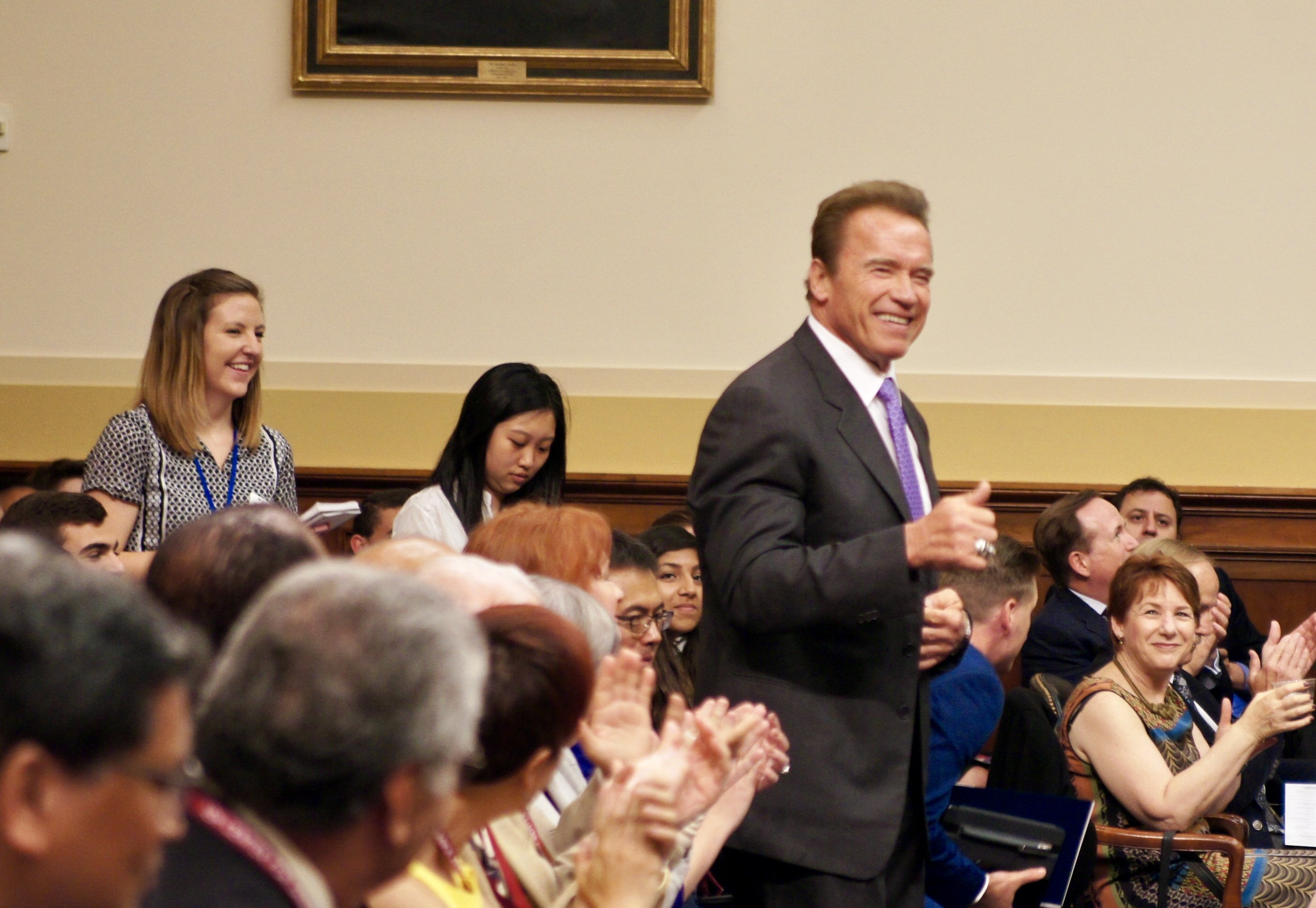While Californians were ahead of their time in passing significant political reforms, including creating an independent redistricting commission to end gerrymandering, there are many states attempting to follow our example and a lot of attention currently on the harm and unfairness created by this issue. Acknowledging the leadership of California, Harvard University’s John F. Kennedy School of Government honored the California Citizens Redistricting Commission and Governor Schwarzenegger in Washington DC on July 21, 2017 at an award ceremony. The California Citizens Redistricting Commission received this year’s Roy and Lila Ash Innovations Award for Public Engagement in Government for demonstrating how citizens can constructively and fairly take control of the redistricting process.
“Though partisan redistricting is very harmful to American democracy and deeply disrespectful to its citizens, politicians of all stripes find it difficult to resist the temptation to abuse their power by manipulating electoral maps to favor themselves of their party, said Archon Fung, Academic Dean of the Harvard Kennedy School. “But the California Citizens Redistricting Commission shows how citizens can take the lead in redistricting efforts to construct maps that respect communities and citizens and are fair to political parties.”
The California Citizens Redistricting Commission extended the special invitation to Governor Schwarzenegger to attend the ceremony and share this honor because of his longstanding support for nonpartisan redistricting in both California and throughout the United States and for his tireless work campaigning for Propositions 11 and 20, the two ballot initiatives that established the Commission and its power to draw district lines.
“When I became Governor the people of California sent me to Sacramento to kick some butt, to go and bring Democrats and Republicans together. I promised them that I was going to do that,” said Schwarzenegger. “In the movies, you can solve this problem very quickly, you go into the room, break the door down, see all the guys mapping out their district lines and fixing the system and you go and blow up the room, tear up the maps and throw everyone out the window and the job is done…but that is in the movies, I had to work in the real world…I felt that had to bring Republicans and Democrats together and that was done through redistricting reform.”
Proposition 11 was approved by voters in 2008 and authorized the creation of a new 14-member citizens commission charged with drawing district lines for the State Senate and Assembly. Two years later, voters returned to the polls and approved Proposition 20 which expanded the commission’s responsibilities to include drawing the boundaries for California’s 53 Congressional districts. Previously, redistricting was controlled by the State Legislature in Sacramento. The Commission’s maps, approved in 2011 for the 2012 election cycle, helped break the incumbent monopoly on many of California’s state legislative and House districts. In 2010, none of the state’s incumbent members of Congress lost their elections. Two years later, after the new boundaries came into effect, nine House seats became competitive and in Sacramento 38 new Assemblymembers won seats.
Along with the Ash Innovations Award, the California Citizens Redistricting Commission also received a $100,000 grant to support the replication and dissemination of similar initiatives throughout the United States. The Schwarzenegger Institute looks forward to continuing our work with the Commission and good government groups like Common Cause and the League of Women Voters to build awareness and support for citizen redistricting as well as continuing to support academic research validating the results of such policies.

